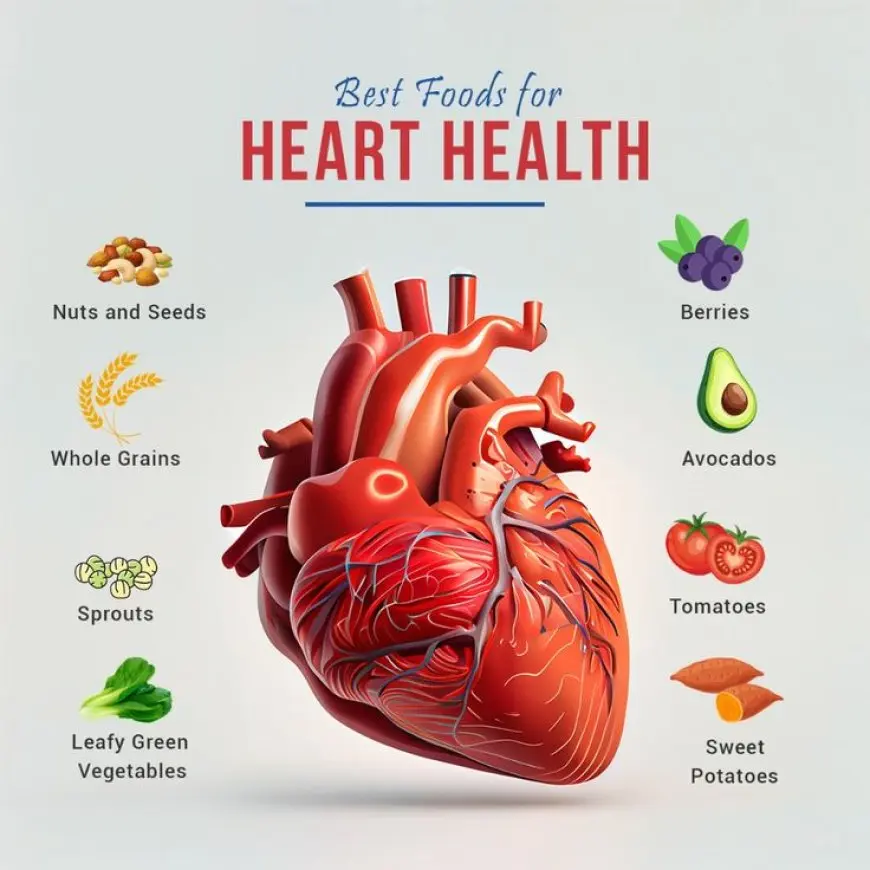The Role of Omega-3s in Heart Health
The Role of Omega-3s in Heart Health

Omega-3 fatty acids are essential fats that play a vital role in maintaining overall health, particularly when it comes to the heart. Unlike some other fats, omega-3s are not produced by the body, so they must be obtained through diet or supplements. Research has consistently shown that omega-3 fatty acids offer significant cardiovascular benefits, making them an important component of a heart-healthy lifestyle.
What Are Omega-3 Fatty Acids?
Omega-3s are a type of polyunsaturated fat with anti-inflammatory properties. The three main types of omega-3s are:
- ALA (Alpha-Linolenic Acid): Found in plant-based sources like flaxseeds, chia seeds, and walnuts.
- EPA (Eicosapentaenoic Acid): Found in fatty fish and fish oil.
- DHA (Docosahexaenoic Acid): Also found in fatty fish and is crucial for brain and heart health.
How Omega-3s Benefit the Heart
Omega-3 fatty acids contribute to heart health in several ways:
- Reduces Triglycerides: High triglyceride levels are a risk factor for heart disease. Omega-3s can significantly lower these levels, improving lipid profiles.
- Lowers Blood Pressure: Omega-3s help relax blood vessels, which can reduce blood pressure in people with hypertension.
- Prevents Arrhythmias: Omega-3s contribute to the stability of heart rhythms, reducing the risk of dangerous irregular heartbeats.
- Decreases Inflammation: Chronic inflammation can damage blood vessels and contribute to heart disease. Omega-3s help reduce inflammation throughout the body.
- Improves Cholesterol Levels: Omega-3s increase HDL (good cholesterol) levels, which help remove LDL (bad cholesterol) from the bloodstream.
- Reduces Risk of Blood Clots: Omega-3s make blood less likely to clot, reducing the risk of strokes and heart attacks.
Sources of Omega-3 Fatty Acids
To reap the cardiovascular benefits of omega-3s, include the following foods in your diet:
- Fatty Fish: Salmon, mackerel, sardines, trout, and tuna are excellent sources of EPA and DHA.
- Plant-Based Sources: Flaxseeds, chia seeds, walnuts, and hemp seeds provide ALA.
- Fortified Foods: Some eggs, milk, and plant-based beverages are fortified with omega-3s.
- Supplements: Fish oil, krill oil, and algal oil supplements are alternatives for those who don’t consume enough omega-3-rich foods.
How Much Omega-3 Do You Need?
The American Heart Association recommends consuming at least two servings of fatty fish per week for cardiovascular health. For those with heart disease or elevated triglycerides, higher doses of omega-3s, often through supplements, may be recommended by a healthcare provider.
Omega-3s and Diet Balance
It’s essential to balance omega-3 intake with omega-6 fatty acids, another type of polyunsaturated fat found in many processed and fried foods. While omega-6s are necessary, consuming them in excess without adequate omega-3s can promote inflammation. Aim for a balanced ratio by increasing omega-3-rich foods and reducing processed foods.
Potential Risks and Considerations
While omega-3s are generally safe, consuming extremely high doses through supplements can thin the blood excessively, increasing the risk of bleeding. Always consult with a healthcare provider before starting high-dose omega-3 supplements, especially if you take blood-thinning medications.
Omega-3 fatty acids are a cornerstone of heart health, offering numerous benefits, from reducing inflammation and triglycerides to preventing arrhythmias and supporting overall cardiovascular function. Incorporating omega-3-rich foods into your diet is a simple and effective way to protect your heart and promote long-term wellness.







